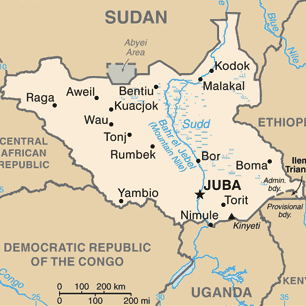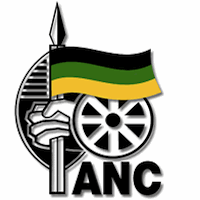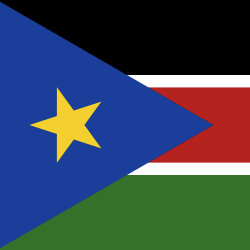As the reciprocal mass killings continue to rage across the Central African Republic despite the rising numbers of regional African Union troops and existing French United Nations troops, the U.N. is now saying they may need at least ten thousand intervention troops, several thousand more than have already been ordered to the country. These troops, unlike many peacekeeping missions, are authorized to use proactive force to protect civilians and end violence.
The AU intervention force — which has already clashed repeatedly with protesters and militia groups over their conflicts-of-interest in the country — will soon be at 6,000. The UN has also already cleared 600 more intervention troops to come in from the European Union. Former colonial ruler France alone has 1,200 troops on the ground, mostly protecting key points in the capital, including refugees at the airport.
More than 1 in 5 people in the country has been forced to flee their homes, caught in the vengeful crossfire of Muslim and Christian militias after a rebel coalition was disbanded and went on a rampage last year. Unlike the reasonably cautious negotiation progress seen in next-door South Sudan, the C.A.R. has not seen much relief from the violence and humanitarian crisis, despite the efforts of a dozen leaders from across the region, who even secured the appointment of a new bridge-building president recently.
The large country, facing a refugee crisis of one million, will probably realistically require more than even ten thousand. But if the lengthy problems with the neighboring Congo missions are any indication, a United Nations force will always be under-manned relative to the scale and geography of the crisis. Plus, with the recent deaths of peacekeeping troops in South Sudan, while protecting refugees on a UN base, it’s going to be a tough sell right now to get countries to contribute boots on the ground.



 On the one hand, I think that reinforces
On the one hand, I think that reinforces  South Africa’s biggest union has announced it
South Africa’s biggest union has announced it  South Sudan is Africa’s newest country and is a significant oil-producer (
South Sudan is Africa’s newest country and is a significant oil-producer (